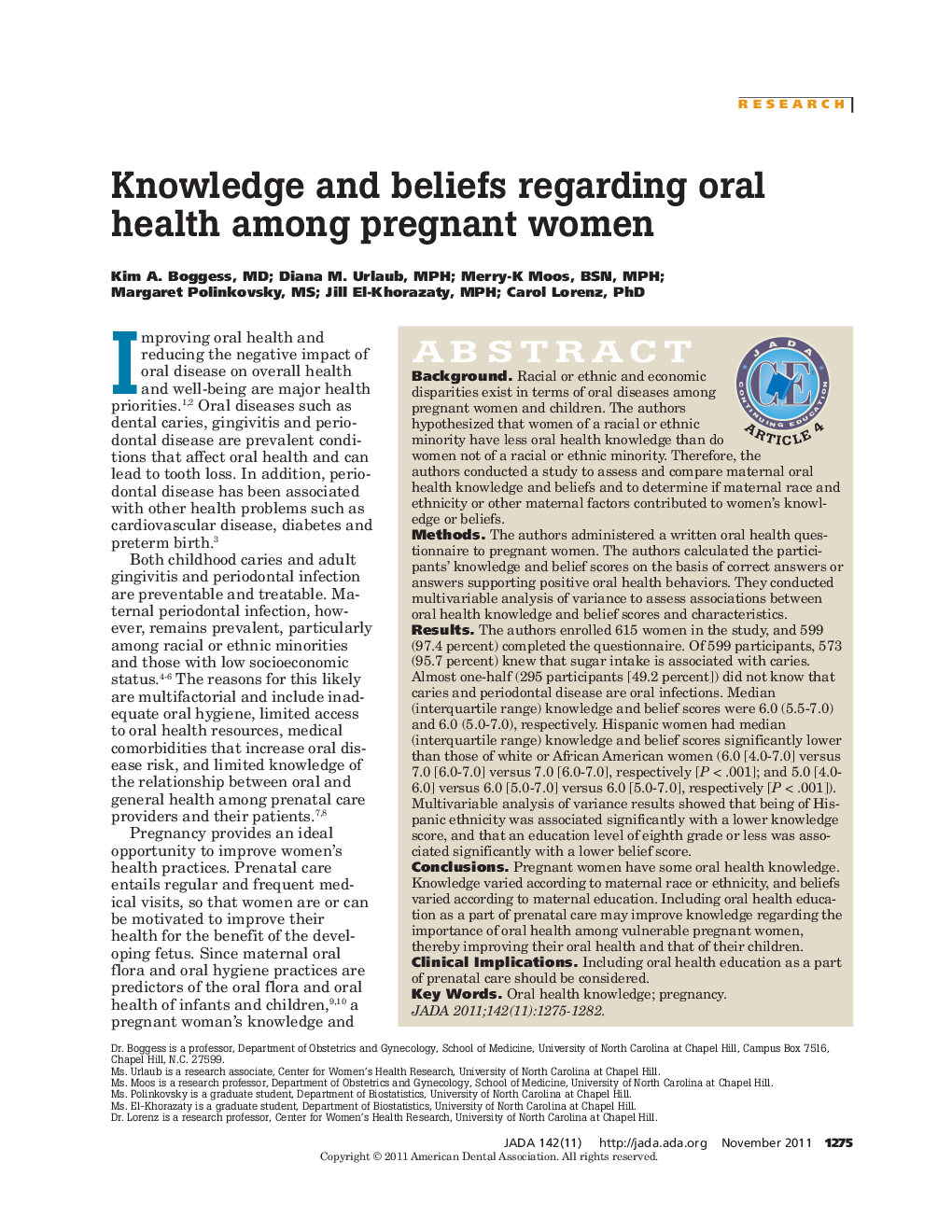| Article ID | Journal | Published Year | Pages | File Type |
|---|---|---|---|---|
| 3138134 | The Journal of the American Dental Association | 2011 | 8 Pages |
ABSTRACTBackgroundRacial or ethnic and economic disparities exist in terms of oral diseases among pregnant women and children. The authors hypothesized that women of a racial or ethnic minority have less oral health knowledge than do women not of a racial or ethnic minority. Therefore, the authors conducted a study to assess and compare maternal oral health knowledge and beliefs and to determine if maternal race and ethnicity or other maternal factors contributed to women’s knowledge or beliefs.MethodsThe authors administered a written oral health questionnaire to pregnant women. The authors calculated the participants’ knowledge and belief scores on the basis of correct answers or answers supporting positive oral health behaviors. They conducted multivariable analysis of variance to assess associations between oral health knowledge and belief scores and characteristics.ResultsThe authors enrolled 615 women in the study, and 599 (97.4 percent) completed the questionnaire. Of 599 participants, 573 (95.7 percent) knew that sugar intake is associated with caries. Almost one-half (295 participants [49.2 percent]) did not know that caries and periodontal disease are oral infections. Median (interquartile range) knowledge and belief scores were 6.0 (5.5–7.0) and 6.0 (5.0–7.0), respectively. Hispanic women had median (interquartile range) knowledge and belief scores significantly lower than those of white or African American women (6.0 [4.0–7.0] versus 7.0 [6.0–7.0] versus 7.0 [6.0–7.0], respectively [P < .001]; and 5.0 [4.0–6.0] versus 6.0 [5.0–7.0] versus 6.0 [5.0–7.0], respectively [P < .001]). Multivariable analysis of variance results showed that being of Hispanic ethnicity was associated significantly with a lower knowledge score, and that an education level of eighth grade or less was associated significantly with a lower belief score.ConclusionsPregnant women have some oral health knowledge. Knowledge varied according to maternal race or ethnicity, and beliefs varied according to maternal education. Including oral health education as a part of prenatal care may improve knowledge regarding the importance of oral health among vulnerable pregnant women, thereby improving their oral health and that of their children.Clinical ImplicationsIncluding oral health education as a part of prenatal care should be considered.
